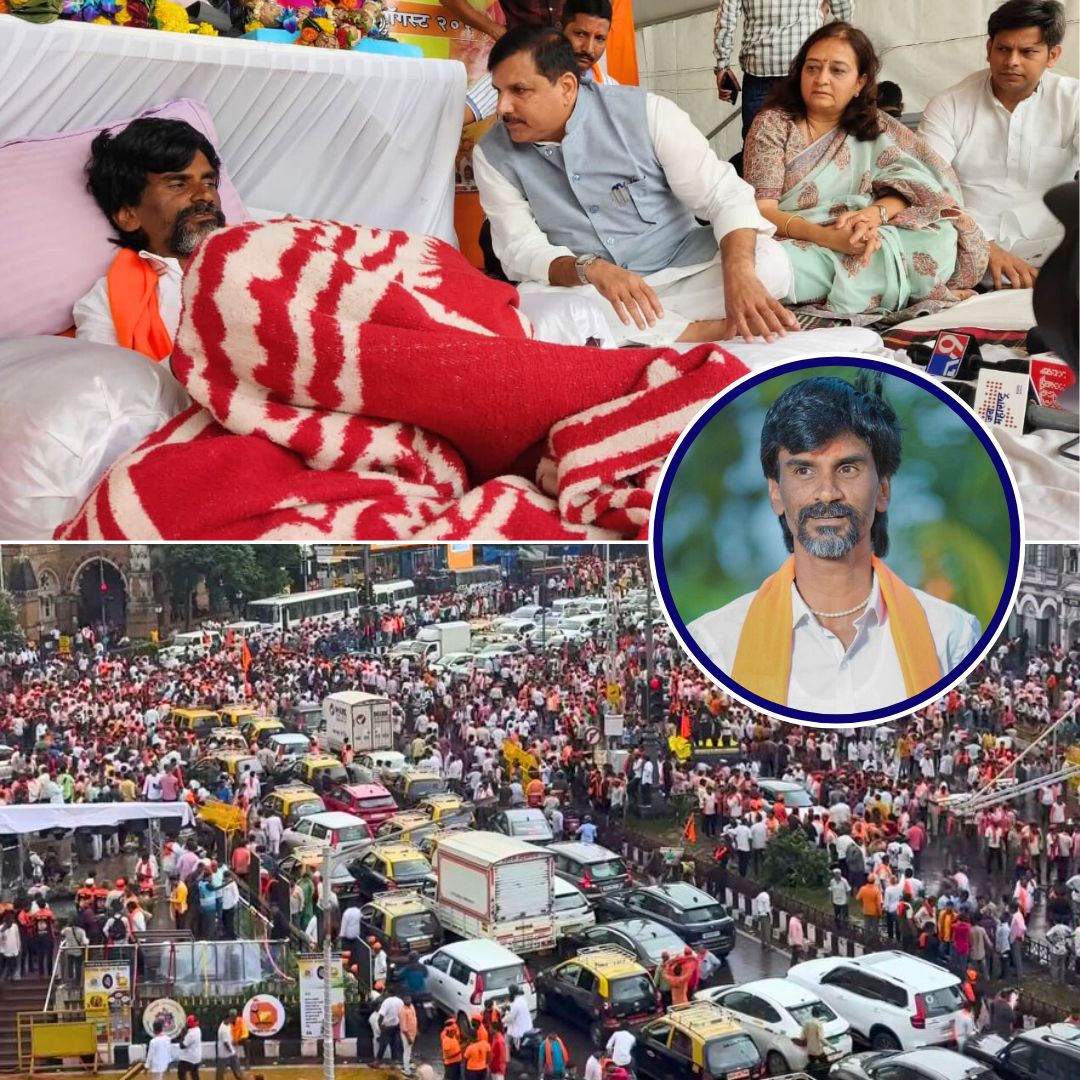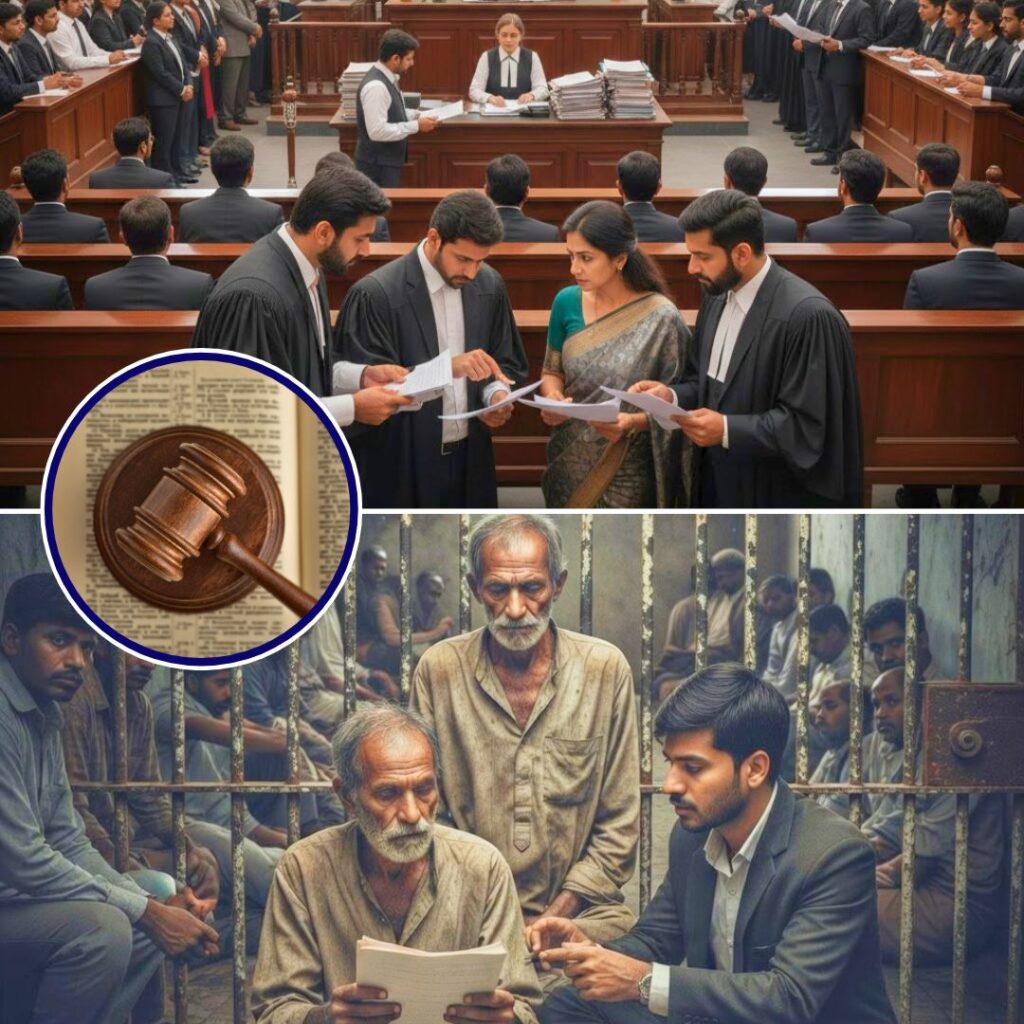After five days of sustained protest and a hunger strike at Mumbai’s Azad Maidan, Maratha quota activist Manoj Jarange announced victory as Maharashtra ministers agreed to key demands.
The government committed to issuing Government Resolutions (GRs) recognising Marathas and Kunbis as members of the same community, withdrawing cases against protesters, and compensating families of those who died during the agitation. The Bombay High Court allowed Jarange to continue his protest till September 3, while urging restoration of normalcy.
Government Concedes to Maratha Quota Demands
On Tuesday afternoon, senior Maharashtra ministers led by cabinet sub-committee head Radhakrishna Vikhe Patil met with Jarange at Azad Maidan amidst growing pressure to resolve the agitation peacefully.
The government presented a draft proposal including implementation of the Hyderabad Gazette to provide Kunbi caste certificates to eligible Maratha families, a similar decision for the Satara princely state within a month, and the withdrawal of FIRs against protesters by the end of September.
Financial assistance and government jobs will be given to kin of deceased protesters. Jarange, expressing relief, declared he would end his hunger strike and vacate Azad Maidan once GRs are issued.
Bombay High Court Orders Controlled Protest and Normalcy
The Bombay High Court played a critical role in regulating the agitation. While recognising the protesters’ right to peaceful assembly, the HC emphasised the necessity of maintaining public order. The bench, led by Acting Chief Justice Shree Chandrashekhar and Justice Aarti Sathe, ordered Jarange and his supporters to vacate the Azad Maidan by 3 pm on September 2, warning of strict legal action for non-compliance, including contempt proceedings and exemplary costs. Th
e court noted the protest had paralysed parts of Mumbai and disturbed normal life. However, the HC also accepted Jarange’s plea to continue the protest legally till September 3 to enable dialogue with the government, with the next hearing scheduled at 1 pm that day. The court underscored strict adherence to laws governing public protests and ordered the government to ensure medical care for Jarange.
The Maratha Quota Movement – A Historical Perspective
The agitation reflects the Maratha community’s longstanding demand for reservation under the Other Backward Classes (OBC) category in Maharashtra’s government jobs and educational institutions. Legal challenges and political hurdles delayed earlier efforts to grant the quota. Jarange’s protest, which drew tens of thousands of supporters to Mumbai amid a tense legal backdrop, kept the spotlight on the issue.
The Bombay High Court stepped in with a deadline to clear the protest site to restore order but allowed dialogue, recognising the community’s right to peaceful assembly.
The Logical Indian’s Perspective
The Logical Indian applauds this peaceful resolution achieved through persistent civic action and constructive government dialogue. It underscores the importance of empathetic governance and inclusive policy-making that respects community aspirations while upholding constitutional fairness. Sustainable social cohesion requires listening, compromise, and mutual respect.
The situation at #CSMT station is chaotic, with a high number of people gathered there due to a #Maratha quota protest. Thousands of protesters, supporters of #ManojJarange, have been arriving at the station since Wednesday#mumbai #maratha_reservation #Trending pic.twitter.com/tUwBmC7KmN
— Priya Pandey (@priyapandey1999) August 29, 2025













